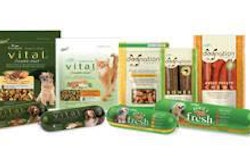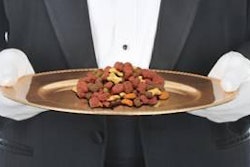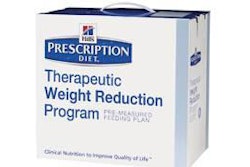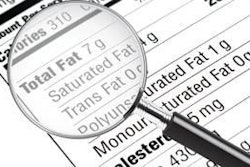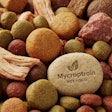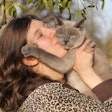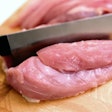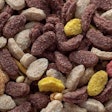Many animals convert β-carotene to retinol to meet their vitamin A (VA) requirement. However, this pathway is inefficient in many carnivores. This study quantified the plasma response to a single oral dose of [2H8]-β-carotene in adult domestic cats, including measurement of [2H4]-retinol derived from the dose. Cats were fed with either a control diet containing adequate VA or a VA-devoid diet for 28 days. An oral dose of either 5 mg/kg body weight (BW) or 10 mg/kg BW of [2H8]-β-carotene was administered on day 28. Plasma samples were collected prior to dosing and at various hourly intervals post-dose.
β-carotene was undetectable in plasma prior to dosing. Mean peak plasma β-carotene was 0.37 ± 0.06 nmol/ml at 9.0 ± 1.8 hours post-dose, while [2H4]-retinol peaked at 3.71 ± 0.69 pmol/ml at 55.2 ± 16.3 hours. There was little effect of diet or dose on the β-carotene or [2H4]-retinol responses.
The appearance of [2H4]-retinol in plasma indicates cats are capable of converting β-carotene to active VA. Conversion efficiency was not calculated in this study, but it is likely inadequate to meet cats’ VA requirement without the inclusion of preformed VA in the diet.
Source : A.S. Green et al., 2011. Domestic cats convert [2H8]-β-carotene to [2H4]-retinol following a single oral dose. JAPAN online July 2011. doi: 10.1111/j.1439-0396.2011.01196.x

